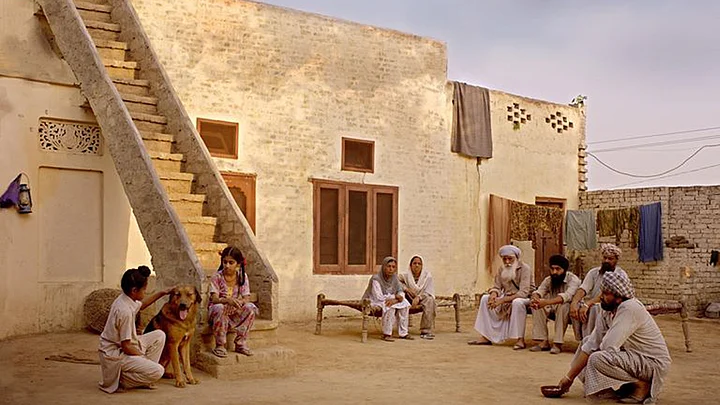Punjab, it seems, is the flavour of the season.
After Abhishek Chaubey’s no holds barred Udta Punjab , Gurvinder Singh takes us back a couple of decades when the state was in the grips of the Sikh separatist movement. It is set in the 80’s when Punjab was burning in the crossfire between Khalistani militants and security forces.
Dunked in realism and devoid of the clichéd sarson ke khet and bhangra dances, Chauthi Koot (The Fourth Direction) has already garnered considerable critical acclaim, having premiered at Cannes in 2015 and won the National award for the Best Punjabi film among others.
Right at the beginning of Chauthi Koot, we meet two men in the dead of night in a desolate railway station. No dialogues are spoken but the urgency is palpable. They must somehow board the train if they have any chance of reaching Amritsar, we gather.
A couple of hushed voices and the soft rubbing of a brush on leather boots is the only sound that slices through the thick silence. In Gurvinder Singh’s Chauthi Koot, the less we hear, the more we listen.
The dialogues exchanged are minimal, sometimes just half sentences but the ellipsis is heavy with an ominous air of fear and mistrust – something which is intrinsic to the narrative.
We listen to the shared urgency of all the men in the small train compartment that night, the hiss of mistrust audible. Tethered to the memory of one of the men on that train is our lead to the central character Joginder.
The canvas isn’t made of large lavish frames but instead plays out in an intimate setting; in many ways a psychological exploration of fear as we witness a kid’s love for his pet dog or a man’s worry for his family’s safety.
We continue to listen though, to the wind in the lush fields, to the threatening knock on the door, the assurance of a prayer or to cries of help as the silence gets disrupted, sometimes by the veiled threats of militants, at other times by the thud of the intruding footsteps of security forces. The outside noise breaching the quiet of the space Jogi calls home and wants to protect.
Based on the two short stories by Waryam Singh Sandhu, director Gurvinder Singh’s keen eye for verisimilitude makes for a remarkable watch. For the flavourful evocation of the rural tapestry luxuriated in the various scenes, all credit is due to cinematographer Satya Rai Nagpaul.
Probably the weakest thing about the film is the way the two stories have been forced to converge but there is never any doubt about Singh’s mastery over his subject.
Actors Suvinder Vicky, Rajbir Kaur, Gurpreet Bhangu never let the command over their characters slip. But the most endearing member of the family would have to be the dog, Tommy, the only one is this little universe unsullied by both the violence and violation. With ears perked up, he barks every time there is a strange sound that threatens his home, at times inviting the wrath of the very people he wants to protect.
But is there a lesson in it for all of us to learn? About how the State must learn when to listen and when to stand guard…
The lack of concessions to mainstream contrivances might mean that this isn’t up everyone’s alley.
The unhurried pace will need some getting used to but if you want to explore the cinematic universe beyond Bollywood’s typical pomp and show, this Punjabi film with English subtitles should be your pick.
I give it 3.5 QUINTS out of 5.
(At The Quint, we question everything. Play an active role in shaping our journalism by becoming a member today.)
